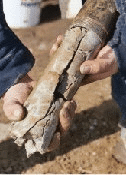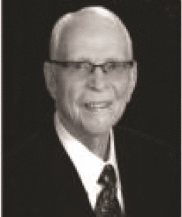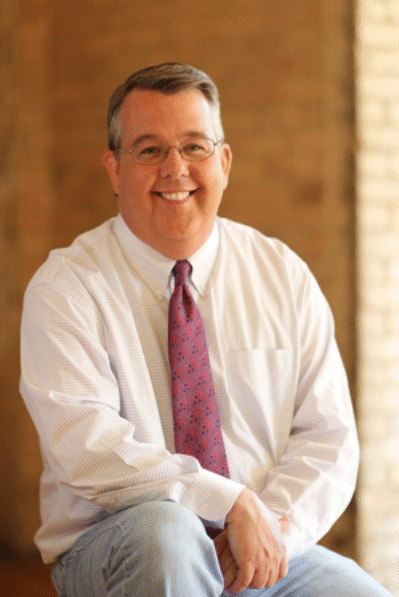ROCK CORE LOGGING FOR HYDROGEOLOGIC PROJECTS:
Assessing Recovery, RQD, Fractures and Stratigraphy
This webinar is dedicated to the Don U. Deere, world-renown engineering geologist
and developer of RQD. This on-demand webinar also includes the 10-minute Tribute
to Dr. Deere given by his son, Don W. Deere.
 Hydrogeologic projects in fractured rock demand different rock core characterization compared to civil engineering projects that focus on strength and stability.
Hydrogeologic projects in fractured rock demand different rock core characterization compared to civil engineering projects that focus on strength and stability.
Confusing methods, conflicting terms, and variations of published techniques have caused professionals to log core inconsistently and sometimes, incorrectly. The contrasting differences between geotechnical applications and hydrogeologic purposes have also contributed to different logging styles and methods that have resulted in insufficient information for hydrogeologic projects.
This 90-minute webinar is designed to demystify the confusion associated with measuring rock core recovery and RQD while characterizing stratigraphy and fractures in rock cores.
Learn to log and describe rock core
specifically for hydrogeologic projects
Participants will not only learn the basics of rock core logging, but also discover some field methods for helping to predict the nature and likelihood of fracture trends in certain rock types. In addition, participants will discover some important reasons to avoid the term "weathered" (slightly, moderately or highly) on their rock core descriptions and how to better characterize weathering and secondary alterations using common qualitative terms.
Learn how geologic context is key for success with logging both sediments and rock. In this webinar, we will also present up-to-date procedures for building the hydrogeologic framework during the field activities and their hydrogeologic applications.
Characterizing fractures is good, but understanding
their context and distribution is a key for confident characterization.
 This webinar is dedicated to Don U. Deere, PhD, world-renowned engineering geologist and the developer of Rock Quality Designation (RQD). Dr. Deere passed away on January 18, 2018 in Gainesville at the age of 95. RQD is today a common standard used during rock core logging and scanline analysis. Dr. Deere will be missed but his legacy of contributions and love will last for years to come.
This webinar is dedicated to Don U. Deere, PhD, world-renowned engineering geologist and the developer of Rock Quality Designation (RQD). Dr. Deere passed away on January 18, 2018 in Gainesville at the age of 95. RQD is today a common standard used during rock core logging and scanline analysis. Dr. Deere will be missed but his legacy of contributions and love will last for years to come.
More
Instructors Bio
Dan Kelleher, PG, CIPM
 Dan Kelleher, PG, CIPM is a consulting hydrogeologist and project manager focuses on the technical areas of quantitative hydrogeology (in porous and fractured media), geotechnical analysis of sedimentary sequences, aquifer testing, fractured rock hydrogeology, and predictive ground water modeling. Dan's business acumen promotes personal trust, integrity, and relentless QA/QC.
Dan Kelleher, PG, CIPM is a consulting hydrogeologist and project manager focuses on the technical areas of quantitative hydrogeology (in porous and fractured media), geotechnical analysis of sedimentary sequences, aquifer testing, fractured rock hydrogeology, and predictive ground water modeling. Dan's business acumen promotes personal trust, integrity, and relentless QA/QC.
Dan started his career at Waste Management Corporate Headquarters in Oak Brook, Illinois. His worked allowed him to test geologic concepts about sedimentary processes during large-scale excavation and fill design, environmental and geotechnical investigations, ground water monitoring system design.
Dan also leads specialized technical teams establishing best practices and teaching educational courses and webinars for geologists, engineers and environmental scientists. He and Tim Kemmis are the co-founders of Midwest GeoSciences Group which helps professionals to do better job of TAKING THE MYSTERY OUT OF THE SUBSURFACE. He and Tim believe in that tagline so strongly that they own it as a federally-registered trademark.
Midwest GeoSciences Group allows Dan to help people not only be better scientists and engineers, but become better people. It is a privilege to collaborate with people on a spectrum of topics ranging from field tool development to cutting-edge engineering advances to environmental regulation input. Dan is motivated by serving others in order to fulfill our human purpose and achieve responsible global stewardship.